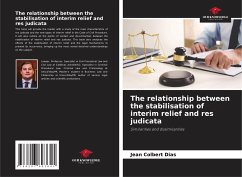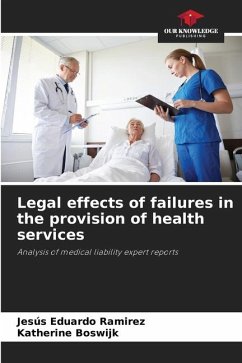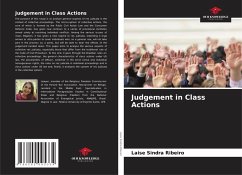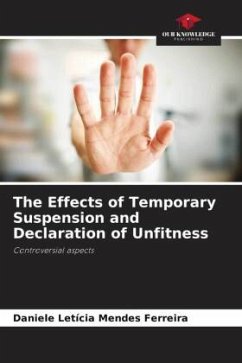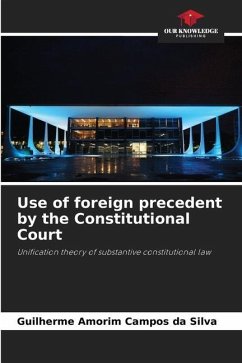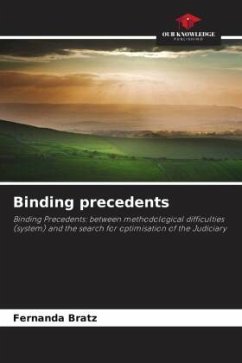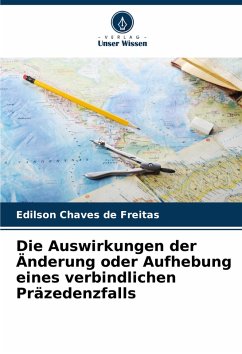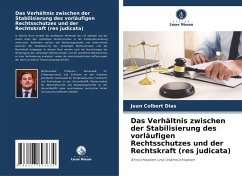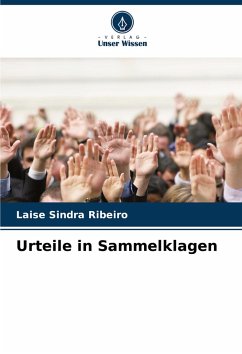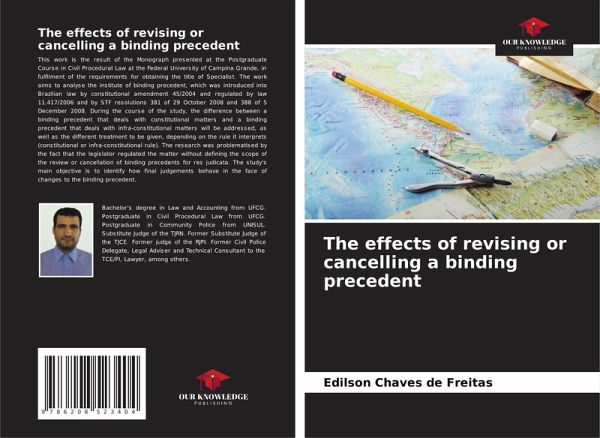
The effects of revising or cancelling a binding precedent
Versandkostenfrei!
Versandfertig in 6-10 Tagen
16,99 €
inkl. MwSt.

PAYBACK Punkte
8 °P sammeln!
This work is the result of the Monograph presented at the Postgraduate Course in Civil Procedural Law at the Federal University of Campina Grande, in fulfilment of the requirements for obtaining the title of Specialist. The work aims to analyse the institute of binding precedent, which was introduced into Brazilian law by constitutional amendment 45/2004 and regulated by law 11.417/2006 and by STF resolutions 381 of 29 October 2008 and 388 of 5 December 2008. During the course of the study, the difference between a binding precedent that deals with constitutional matters and a binding preceden...
This work is the result of the Monograph presented at the Postgraduate Course in Civil Procedural Law at the Federal University of Campina Grande, in fulfilment of the requirements for obtaining the title of Specialist. The work aims to analyse the institute of binding precedent, which was introduced into Brazilian law by constitutional amendment 45/2004 and regulated by law 11.417/2006 and by STF resolutions 381 of 29 October 2008 and 388 of 5 December 2008. During the course of the study, the difference between a binding precedent that deals with constitutional matters and a binding precedent that deals with infra-constitutional matters will be addressed, as well as the different treatment to be given, depending on the rule it interprets (constitutional or infra-constitutional rule). The research was problematised by the fact that the legislator regulated the matter without defining the scope of the review or cancellation of binding precedents for res judicata. The study's mainobjective is to identify how final judgements behave in the face of changes to the binding precedent.





